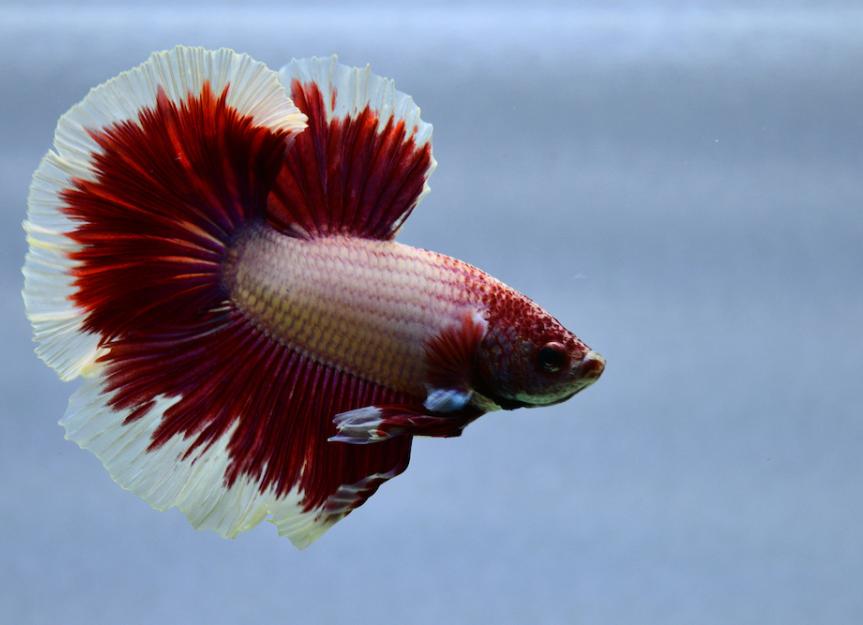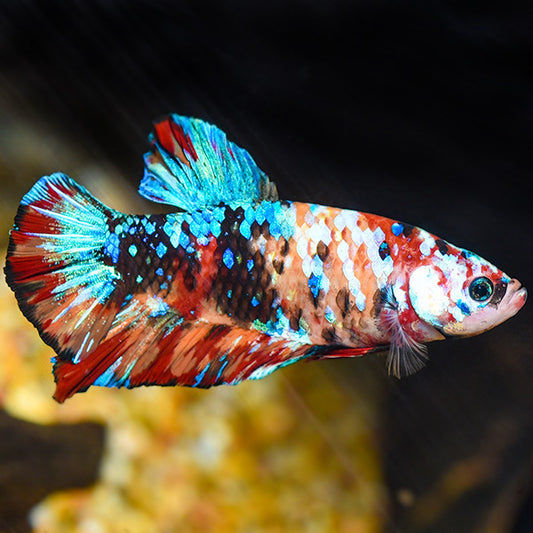Betta Fish Life-span: Just How to Guarantee Your Betta Lives Longer
Wiki Article
All Concerning Betta Fish: Recognizing Their Distinct Demands, Actions, and the Best Practices for Optimal Treatment
Recognizing the unique requirements and behaviors of Betta fish is essential for any aquarist wanting to supply optimum care. These captivating creatures, native to the warm waters of Southeast Asia, exhibit distinct territorial tendencies and require particular ecological conditions to grow. From selecting the right container dimension to identifying potential health and wellness concerns, numerous elements considerably influence their health. As we explore these aspects further, the ramifications for both amateur and knowledgeable fish caretakers become significantly apparent, increasing concerns concerning how finest to suit these impressive fish in our homes.Betta Fish Introduction
Although typically admired for their lively colors and moving fins, Betta fish, medically called Betta splendens, are complex creatures that call for certain like flourish. Stemming from Southeast Asia, these freshwater fish are understood for their territorial nature and distinct habits. Betta fish show sex-related dimorphism, with men presenting extra vibrant shades and longer fins than women.Their hostile propensities, especially among men, demand mindful factor to consider when real estate them. Bettas are often kept in single-specimen storage tanks to avoid territorial conflicts. They can exist together peacefully with particular compatible types in bigger area containers, provided the setting meets their needs.

To make certain ideal treatment, aquarists should recognize their distinct behavior characteristics, dietary needs, and environment requirements. betta fish. With correct interest, Betta fish can show their lively personalities and thrive in a well-kept aquarium setting
All-natural Environment and Environment
Betta fish grow in a diverse variety of all-natural habitats, mostly discovered in the shallow waters of Southeast Asia, consisting of rice paddies, swamps, and slow-moving streams. These atmospheres are characterized by warm temperature levels, commonly in between 75 ° F and 82 ° F(24 ° C and 28 ° C ), and a pH level ranging from 6.5 to 7.5, which is suitable for their health and wellness and wellness.
In their all-natural surroundings, Betta fish are accustomed to dense vegetation, providing both sanctuary and reproducing grounds. The visibility of plants such as floating water lilies and thick grasses not just offers security from killers however also adds to the oxygenation of the water, which is necessary for their breathing requirements. Furthermore, these environments frequently have areas of still water, permitting Betta fish to show their natural behaviors such as bubble nesting.
Comprehending the all-natural habitat of Betta fish is essential for aquarium lovers. Reproducing these conditions-- via water temperature level, pH equilibrium, and the inclusion of live plants-- can substantially enhance the overall health and longevity of these exciting fish, guaranteeing they thrive in a home fish tank setting.
Social Behavior and Interactions
Recognizing the social actions and communications of Betta fish is necessary for effective aquarium monitoring. Betta fish, or Siamese fighting fish, are known for their unique behavior qualities, defined mainly by territoriality and aggression.Alternatively, women Bettas exhibit less aggressive behavior and can coexist in groups, referred to as sororities, if introduced properly. It is important to check their communications very closely, as pecking order and supremacy can lead to problems. Comprehending the dynamics within a Betta area is essential; establishing concealing areas and making certain enough area can reduce hostility.
On top of that, Betta fish may likewise show interest and social habits in the direction of other species. While they can coexist with certain non-aggressive container mates, it is vital to pick compatible types to prevent anxiety and aggression. In general, recognizing these social interactions is crucial see this to cultivating a harmonious aquarium atmosphere for Betta fish.
Important Treatment Guidelines
Giving correct care for Betta fish is essential to their wellness and wellness. Normal water adjustments-- about 25% once a week-- help keep water quality.Betta fish need a suitable storage tank dimension; a minimum of 5 gallons is recommended to give appropriate space for swimming and hiding. Consist of decorations and plants to create a stimulating setting, yet prevent sharp things that could damage their delicate fins.

Lastly, ensure the tank is equipped with a filter to keep the water clean, but make use of a mild filter to avoid strong currents that can stress the fish. By adhering to these important care standards, proprietors can promote a healthy and balanced and vivid Betta fish.
Common Health And Wellness Issues and Solutions
In the care of Betta fish, recognition of common health and wellness problems is essential for keeping their health. One widespread problem is fin rot, typically created by inadequate water top quality or bacterial infection. Symptoms consist of frayed or discolored fins. To deal with fin rot, improve water problems and think about utilizing a broad-spectrum antibiotic.An Continued additional common disorder is ich, a parasitical infection characterized by white spots on the fish's body (betta fish). Treatment involves increasing water temperature level and adding fish tank salt to the container, as this can aid eliminate the bloodsucker
Swim bladder disorder is additionally you can check here frequently observed, leading to buoyancy issues. This problem may develop from overfeeding or irregularity. A fasting period of 24-48 hours, complied with by a diet of blanched peas, can give alleviation.
Lastly, bettas may deal with velour illness, shown by a gold dust-like appearance on their skin. Therapy usually calls for medication particularly designed for external bloodsuckers, alongside boosted container health.
Normal monitoring of water parameters, maintaining a clean setting, and providing a well balanced diet regimen are important safety nets. By dealing with these health concerns promptly, Betta fish can lead much healthier, much more lively lives.
Final Thought
In recap, effective betta fish care needs an understanding of their one-of-a-kind demands and behaviors. Giving a suitable environment, consisting of suitable storage tank dimension and water problems, is important for their wellness. Additionally, identifying their territorial nature and making certain sufficient concealing areas can protect against hostility. Regular surveillance of health and wellness and water top quality, together with a balanced diet regimen, adds to the longevity and vibrancy of betta fish. Sticking to these guidelines will certainly foster a thriving aquatic community for these captivating creatures.Report this wiki page